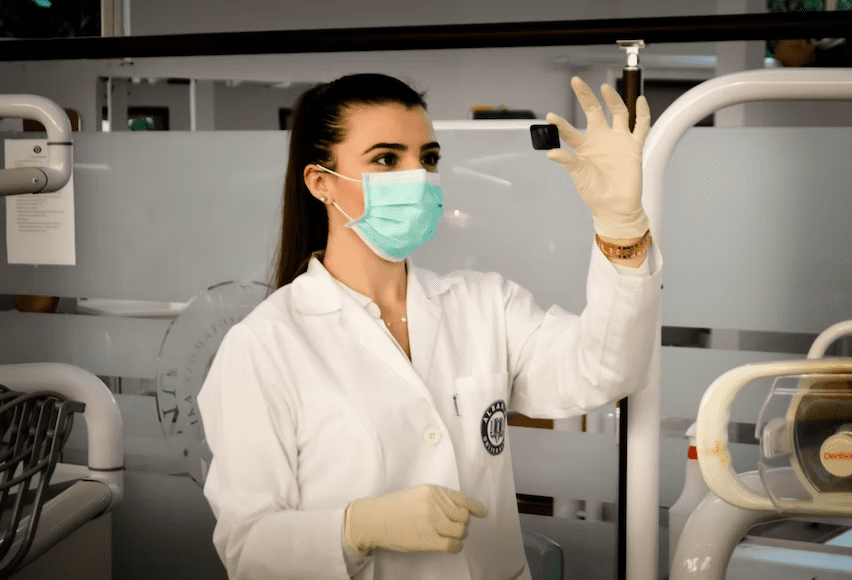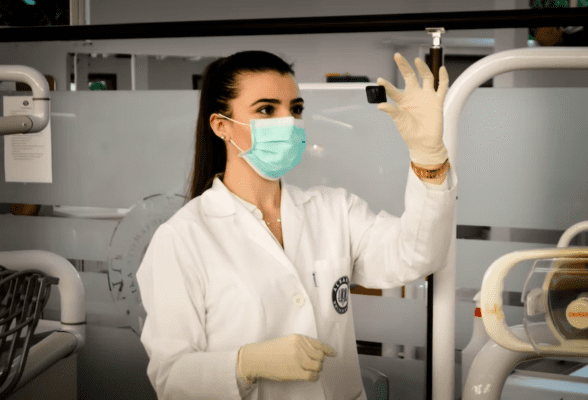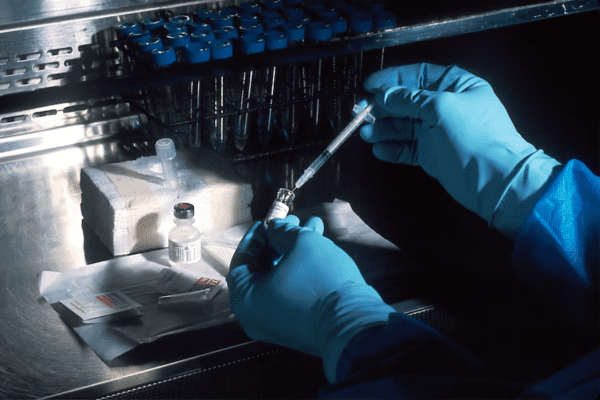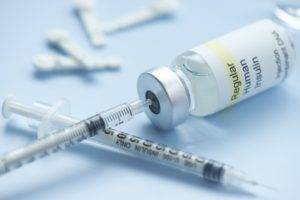
How to Reverse Diabetes Permanently?
How to Reverse Diabetes Permanently?

Having type 2 diabetes may be quite stressful. It might seem never-ending to be constantly checking blood sugar levels, taking medications, and worrying about side effects. But what if there was a method to Reverse Diabetes Permanently? While it would seem impossible, the current study indicates that it is achievable.
Several people with type 2 diabetes have really succeeded in achieving remission, which means they no longer need medication and their blood sugar levels stay within the normal range. It’s crucial to comprehend the variables that affect the likelihood of reversal and the activities you may take to increase your chances of success even if not everyone will be able to reach remission. This article will discuss how you may take charge of your health to enhance your quality of life as well as the intriguing prospect of permanently reversing type 2 diabetes.
Is Permanent Reversal of Type 2 Diabetes Possible?
Type 2 diabetes may be permanently corrected in some people. This normalizes the person’s blood sugar without medicine, and they may maintain it for a long period. Nevertheless, due to several variables, this is not possible for everyone.
Reversing type 2 diabetes depends on fixing the root causes not just weight loss. Overweight is linked to type 2 diabetes, however losing weight may improve insulin sensitivity and blood sugar regulation by getting yourself healthy. The Diabetes Remission Clinical Study found that those who lost 33 pounds or more had a 46% likelihood of remission after one year, compared to 4% for those who did not (DiRECT). “Diabetes Remission Clinical Trial” was the study. In my office when patients lose weight it is because they are getting healthy.
To reverse type 2 diabetes, you must change your diet and lifestyle but also must fix the root causes. Fruits, vegetables, and lean meats may help regulate blood sugar and avoid diabetes. Exercise may also reduce blood sugar and improve insulin sensitivity if your body can handle it.
Age, genetics, severity, and other health conditions may also affect type 2 diabetes reversibility. Some may achieve long-term remission, while others may require lifelong insulin or medication to regulate their blood sugar. Most patients in my office see long term results.
Remember that “treating” type 2 diabetes requires ongoing medical supervision. Regular visits to a doctor, diligent blood sugar monitoring, and a healthy lifestyle may help maintain normal blood sugar levels and prevent recurrence.
Factors That Affect the Possibility of Reversing Type 2 Diabetes

Losing weight
Weight loss can improve blood sugar and insulin sensitivity when its a result of fixing the root causes. Losing weight reduces insulin needs to manage blood sugar. Weight loss improves insulin usage when done the correct way. The New England Journal of Medicine reported that those who lost at least 15 kilos (33 pounds) had a better likelihood of reversing their diabetes.
Diet
Food influences blood sugar and insulin sensitivity. Fiber and veggies can lower blood sugar, whereas processed meals and refined carbohydrates can raise it. A low-carbohydrate or Mediterranean can help balance sugar levels to reverse type 2 diabetes. To create a customized diet, consult a trained functional medicine doctor.
Learn how to control blood sugar and improve your diet here
Exercise
It lowers blood sugar, improves insulin sensitivity, and aids weight loss. Exercise helps manage and reverse type 2 diabetes. The American Diabetes Association recommends 150 minutes of moderate-intensity aerobic activity and two or three resistance training sessions each week.
Medications
Metformin improves insulin sensitivity and lowers blood sugar but doesn’t fix the root causes. Medication alone cannot reverse type 2 diabetes. Remission requires medication and lifestyle adjustments like diet and supplements.
Diabetes duration
Reversing type 2 diabetes becomes harder with time. High blood sugar levels damage organs and tissues, making insulin response tougher. The Lancet reported that persons with diabetes for less than six years were more likely to achieve remission.
Genetics
Genetics affect type 2 diabetes risk and treatment response. Insulin resistance may be inherited, making it harder to reverse diabetes. Lifestyle changes can still affect blood sugar and insulin sensitivity.
Age
Age may reduce insulin sensitivity, making remission harder. Lifestyle adjustments and drugs can help older persons manage diabetes. Work with a doctor to create a strategy that takes into consideration your age and other health issues.
The Impact of Diet and Lifestyle Changes on Type 2 Diabetes
Nutritional Modifications
- Diet changes can help control type 2 diabetes since food affects blood sugar. Dietary changes may help:
- Balanced diets include fruits, vegetables, lean meats, and healthy fats. A varied diet high in nutrients can help regulate blood sugar and prevent other health issues.
- Sugar and processed carbs can raise blood sugar, so consume them in moderation. Limiting some foods can help regulate blood sugar and reduce health risks.
- Complex carbs take longer to digest, so they raise blood sugar levels more slowly. Complex carbs in fruits, vegetables, and gluten free grains help regulate blood sugar.
- Because fiber slows sugar absorption, it can help you manage your blood sugar. Prioritize fiber-rich foods including fruits and vegetables.
- Avoid overeating to avoid blood sugar spikes. Portion control helps maintain blood sugar and avoid overeating.
- Water flushes extra sugar from the circulation, making hydration vital for blood sugar management.
- Diet alone will NOT reverse type II diabetes but its a good foundation.
Lifestyle Changes
- Diet and lifestyle changes can help manage type 2 diabetes. These lifestyle changes may help:
- Frequent exercise increases insulin sensitivity and lowers blood sugar. Regular exercise lowers blood sugar. At least 20 minutes of moderate exercise should be done most days.
- Obesity might make insulin use harder, so maintain a healthy weight. Maintaining a healthy weight improves blood sugar regulation and reduces health risks.
- Relax. Stress-induced high blood sugar may make type 2 diabetes harder to manage. Meditation, yoga, and deep breathing can help reduce blood sugar.
- Sleep plenty. Sleep deprivation raises blood sugar levels and health risks. Sleep seven to eight hours every night to regulate blood sugar.
- Smoking increases type 2 diabetes consequences such cardiovascular disease and nerve damage. Stopping smoking reduces this risk. Quitting smoking reduces your risk.
The Role of Monitoring Blood Sugar Levels in Reversing Type 2 Diabetes
Monitoring blood sugar levels plays a crucial role in permanently reversing type 2 diabetes. Here’s a detailed explanation of how it helps:
Identifying patterns and triggers
Type 2 diabetics may recognize trends in their blood sugar levels and understand what causes them to climb or decrease by monitoring them frequently. They can observe how diet, exercise, stress, and drugs impact their blood sugar. This may help people adapt their diet, exercise, and medication to maintain appropriate blood sugar levels.
Learn how to control blood sugar and improve your diet here
Achieving glycemic control
“Glycemic control”—tight blood sugar regulation—is advocated for diabetics. Glycemic management is essential to preventing diabetes-related complications such heart disease, renal damage, and nerve damage. Monitoring blood sugar levels often is crucial to treating type 2 diabetes.
Adjusting treatment
Monitoring blood sugar levels may assist type 2 diabetics improve glycemic control by changing their treatment. If they have high blood sugar, they may need to change their diet or medicine. If they often experience low blood sugar, they may need to adjust their medication dosage or timing. Type 2 diabetics should regularly monitor their blood sugar levels to make necessary changes and enhance their health.
Preventing hypoglycemia
Hypoglycemia is severely low blood sugar. This disease may arise in diabetics who take insulin or oral medications. Hypoglycemia may cause convulsions, coma, and death. Regularly checking blood sugar levels may help type 2 diabetics avoid hypoglycemia.
Maintaining healthy habits
Type 2 diabetics should check their glucose levels every day to stay motivated to eat well, exercise, and take their medication. These activities are more likely to be maintained if they improve blood sugar levels.
Long-Term Strategies to Maintain Diabetes Reversal
Reversing type 2 diabetes is a significant achievement, but it’s important to remember that it requires ongoing management and commitment. Maintaining diabetes reversal requires long-term strategies that focus on lifestyle changes and medical management. Here are some strategies that can help maintain diabetes reversal in the long term:
Follow a healthy diet
Maintaining diabetes reversal requires a nutritious diet. Low-processed food, refined carbs, and saturated fat diets can help control blood sugar levels & keep weight off. A diet rich in fiber, veggies, or lean protein can support good weight management and blood sugar control. Working with a qualified dietitian or other healthcare experts to create a custom meal plan that satisfies your nutritional requirements and supports long-term diabetes reversal is crucial.
Learn how to control blood sugar and improve your diet here
Maintain a healthy weight
Maintaining a healthy weight is essential for maintaining diabetes reversal. A healthy weight can help regulate blood sugar levels and reduce the risk of complications associated with type 2 diabetes. It’s important to continue to follow the weight loss plan that helped achieve diabetes reversal and to make adjustments as needed to maintain a healthy weight.
Regular exercise
Regular exercise is essential for maintaining diabetes reversal. It can help regulate blood sugar levels, improve insulin sensitivity, and maintain weight loss. The American Diabetes Association recommends at least 150 minutes of moderate-intensity aerobic activity per week, as well as resistance training two or three times a week. It’s important to work with a healthcare professional to develop an exercise plan that meets your individual needs and helps maintain diabetes reversal.
Monitor blood sugar levels
Monitoring blood sugar levels is essential for maintaining diabetes reversal. Regular monitoring can help identify changes in blood sugar levels and help determine if adjustments to diet, exercise, or medication are needed. It’s important to work with a healthcare professional to determine how often to check blood sugar levels and what target ranges to aim for.
Take medications as prescribed
Medications can be an important part of maintaining diabetes reversal. Some medications, such as metformin, can help improve insulin sensitivity and lower blood sugar levels. It’s important to take medications as prescribed and to work with a healthcare professional to make any necessary adjustments.
Manage stress
Insulin sensitivity and blood sugar levels can both be significantly impacted by stress. It’s crucial to control stress using strategies like deep breathing exercises, mindfulness, and meditation. Frequent exercise can also aid in stress management.
Get regular check-ups
Regular check-ups with a healthcare professional are essential for maintaining diabetes reversal. Regular check-ups can help identify any changes in blood sugar levels or other health concerns and help make any necessary adjustments to diet, exercise, or medication. It’s important to work with a healthcare professional to determine how often to schedule check-ups and what tests or screenings are needed.
Stay educated
Staying educated about diabetes and diabetes management is essential for maintaining diabetes reversal. It’s important to stay up-to-date on the latest research and guidelines and to continue to learn about strategies for managing diabetes. Joining a support group or working with a diabetes educator can also be helpful for maintaining diabetes reversal.
Role of Medication and Insulin in a permanent reversal of Type 2 Diabetes
Insulin and medication can play an important role in managing type 2 diabetes, but they do not permanently reverse the condition. However, they can be used in combination with lifestyle changes to help regulate blood sugar levels and prevent complications. Here’s a detailed article on how insulin and medication impact permanently reversing type 2 diabetes:
Understanding Type 2 Diabetes
It’s critical to comprehend type 2 diabetes and its root reasons before talking about the function of insulin and medicine in treating the illness. Type 2 diabetes develops when the body develops an insulin resistance or when there is insufficient insulin production to control blood sugar levels. As the disorder is chronic, constant treatment and care are necessary.
Role of Insulin in Type 2 Diabetes
Insulin regulates blood sugar. Type 2 diabetics develop insulin resistance, which prevents the body from using insulin properly. This causes high blood glucose and other complications. Insulin treatment can regulate blood sugar by replacing natural insulin or increasing insulin sensitivity.
Role of Medication in Type 2 Diabetes
Type 2 diabetes is treated with a variety of treatments, including oral pills and injectable therapies. To assist control blood sugar levels, these drugs operate in various ways. Although some drugs increase the synthesis of insulin, others lower the amount of glucose produced by the liver or increase insulin sensitivity.
Combining Insulin and Medication with Lifestyle Changes
Insulin and other medications may help control blood sugar levels, but they cannot cure type 2 diabetes. The disease must be permanently reversed, which requires a change in lifestyle. Blood sugar levels and insulin sensitivity may be impacted by making appropriate dietary and activity choices, managing stress, and getting adequate sleep.
Importance of Monitoring Blood Sugar Levels
Monitor blood sugar levels when using insulin and other drugs to treat type 2 diabetes. It may help regulate blood sugar and insulin. It also maintains appropriate blood sugar levels. A healthcare professional can ensure safe and successful blood sugar monitoring.
Personalized Plan for Managing Type 2 Diabetes
Every individual’s particular requirements and objectives must be taken into consideration in a customized strategy for managing type 2 diabetes. A safe and successful strategy that involves insulin, medicine, and lifestyle modifications may be created by working with a healthcare expert.
Learn how to control blood sugar and improve your diet here
Conclusion
Reverse Diabetes Permanently by altering one’s lifestyle, managing one’s stress, and taking medication if required.
To reverse type 2 diabetes, one must follow a balanced diet, get regular exercise, manage stress, check blood sugar levels, consider taking medication if necessary, maintain a healthy weight, and ask for help from loved ones and healthcare providers. Making these adjustments may result in considerable gains in general health and wellbeing, even if it can require some time and effort.
For long-term success in successfully reversing type 2 diabetes, it’s critical to design a specific strategy with the help of healthcare specialists and to remain dedicated to the required lifestyle adjustments.
References:
https://onlinelibrary.wiley.com/doi/full/10.1111/dme.12039
https://diabetesjournals.org/care/article/36/4/1047/37962/Type-2-DiabetesEtiology-and-reversibility







